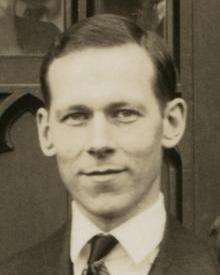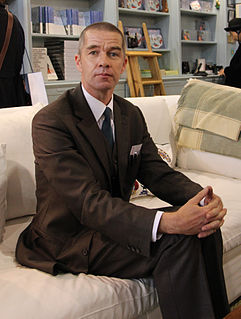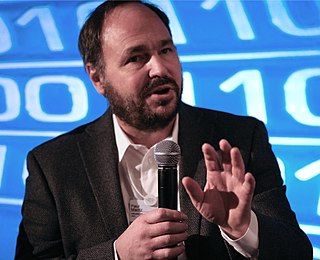A Quote by Edsger Dijkstra
I would therefore like to posit that computing's central challenge, how not to make a mess of it, has not yet been met.
Related Quotes
To call a posit a posit is not to patronize it. A posit can be unavoidable except at the cost of other no less artificial expedients. Everything to which we concede existence is a posit from the standpoint of a description of the theory-building process, and simultaneously real from the standpoint of the theory that is being built.
I would like to emphasize strongly my belief that the era of computing chemists, when hundreds if not thousands of chemists will go to the computing machine instead of the laboratory for increasingly many facets of chemical information, is already at hand. There is only one obstacle, namely that someone must pay for the computing time.
And I found Jesus very disturbing, very straightforward. He wasn't diplomatic, and yet I felt like if I met Him, He would really like me. Don, I can't explain how freeing that was, to realize that if I met Jesus, He would like me. I never felt like that about some of the Christians on the radio. I always thought if I met those people they would yell at me. But it wasn't like that with Jesus.
Neoliberalism eats its own children. Disposability is central to how neoliberalism functions. I would not like to romanticize that, though, by suggesting that it creates dreamers. I would like to suggest that the radical imagination is so powerful, when employed collectively, that people will attempt to find solutions in ways that challenge the very conditions that made them disposable. That's where this sort of thing becomes interesting. We need to be careful about the dreaming quality here.
There is no reason products and services could not be swapped directly by consumers and producers through a system of direct exchange – essentially a massive barter economy. All it requires is some commonly used unit of account and adequate computing power to make sure all transactions could be settled immediately. People would pay each other electronically, without the payment being routed through anything that we would currently recognize as a bank. Central banks in their present form would no longer exist – nor would money.
I met some brothers out from Canada recently who are real cool people. They make Spanish-language music called Cold Blue and I met then at a Lat-Rap conference and they seem like real good peoples from Central America... and that's what it is. It's just based on mutual respect. So when I meet people like that I'm like, "if y'all going to be real with me, I'm going to be real with y'all" and that's all it takes.
Being able to just stick to our instincts and honor the [Hunger Games] books and find a way to stay the course of trying to make the best possible decisions that you would make creatively on any movie, without having your head turned too much by all of the interest, has been a great challenge. It's the best challenge you could ask for, but that was a big challenge.
Internally, we're focused on building our own technology, leveraging all the momentum that's out there around wearable computing and mobile computing and PC computing. But at the end of the day, all the code we've written and all the invention we've created has been focused on our own tech and our own products.
If you look back over the history of computing, it started as mainframes or terminals. As PCs or work stations became prevalent, computing moved to the edge, and we had applications that took advantage of edge computing and the CPU and processing power at the edge. Cloud computing brought things back to the center.
Computers and computing are all around us. Some computing is highly visible, like your laptop. But this is only part of a computing iceberg. A lot more lies hidden below the surface. We don't see and usually don't think about the computers inside appliances, cars, airplanes, cameras, smartphones, GPS navigators and games.





































